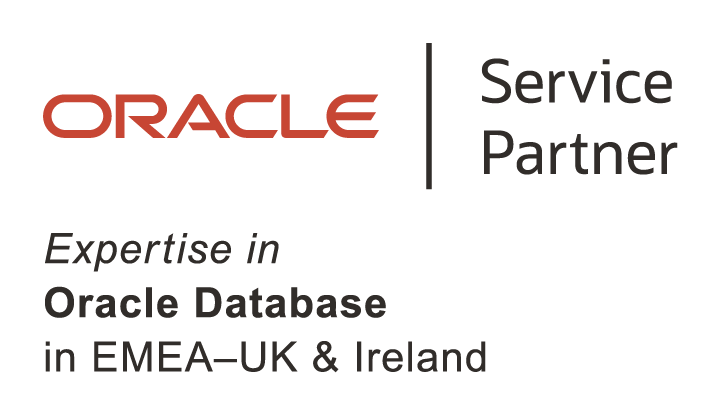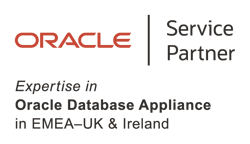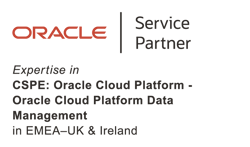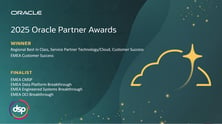
Unlock the value in data with Oracle’s Modern Data Warehouse
Contents
This page explores the significance of data in businesses, its impact in the future, and the top data challenges that companies face. It also discusses data warehouses, their difficulty keeping up with increasing data volumes and the demand for data analysis, and use cases for a modern data warehouse and why this is a better solution than traditional enterprise data warehouses. Furthermore, the page dives into Oracle and Oracle Autonomous Database, highlighting its benefits and why it is a good choice for data management and your business needs.



Data is the lifeblood of business
More and more businesses use data to gain a competitive advantage every day. Almost 66% of high-growth companies already recognise data as a critical asset to their business and have hired strategic business consultants for data and analytics. This is good because it means they can start planning for tomorrow's needs right now.
Accelerate innovation with data
Between 2020 and 2025, analysts predict that the amount of data accumulated will be more than fivefold and that more than 6 billion consumers, or 75% of the world's population, will interact with data daily.
Furthermore, Gartner forecasts that by 2024, 75% of businesses will use AI and machine learning technologies to speed up decision-making processes and enhance decision alignment throughout the organisation. Data and IT leaders are consequently under unprecedented pressure to assist their organisations in capitalising on massive amounts of data.
Businesses are demanding that IT enable them to access, process, and analyse data at ever-increasingly faster rates. However, IT teams are busy maintaining the systems they already have. How can IT leaders balance these seemingly conflicting priorities while also assisting their organisations in making better use of their data?
According to a recent Oracle CIO Research report, which surveyed IT professionals about corporate data-warehouse maintenance and use...
95% of respondents admitted that their legacy data warehouses required extensive manual involvement.
60% complained about overall management complexity.
38% said their data warehouses were too costly to acquire and maintain.
33% reported that their data warehouses were too slow to deploy.
IT is being called upon to assist business units in data analysis and implementing department-specific reporting systems as businesses become more insights-driven.
Silos are for storing materials, not data
Traditional enterprise data warehouses are having difficulty keeping up with increasing data volumes and the demand for data analysis. Businesses have developed siloed systems for individual needs in order to keep up with demand. This disjointed approach has increased cost and complexity while jeopardising governance, availability, performance, and security.
The complexity of application development has increased as well. To extract even more value from data, developers are increasingly employing data-driven technologies such as graph analytics, machine learning, the Internet of Things, spatial processing, blockchain, and real-time analytics. Historically, developing an app that took advantage of these technologies required specialised teams to deploy single-purpose databases for each technology and implement distributed execution and data movement across them.
However, using a single-purpose database for each data type results in database fragmentation with no direct way to integrate data between them. Each single-purpose database is a unique technology with its own set of management controls, security models, and high-availability architectures.
Top challenges businesses are facing:
Large complex data warehouses
Unpredictable management
and manual administration costs
High-volume of
enterprise data
Cyber threats
and privacy leaks
Limited flexibility, operating errors and performance issues
Poor data quality and integration issues
Try new analytics tools
Consistent, fast end-user performance regardless of user count, query type, or contention for critical data sets.
Spearhead security and information lifecycle projects
The ability to scale up or down as needed to meet changing demand.
Work as data architects instead of administrators
Deployment in minutes rather than months.
Focus on data modeling
Support for third-party integration and analytics tools.
Identify new revenue streams through data
Data breach protection, malware injections, DDoS attacks, malicious insiders, advanced persistent threats, insecure APIs, and account hijacking.
Lead migration and upgrades
Why Oracle is the best choice for data management
To help organisations get the most out of their data, Oracle created the modern data warehouse—a single solution that offers a wide range of services such as self-driving integration, data warehouses, data lakes, analytics services, and data science.
The modern data warehouse streamlines the entire data life cycle, from ingestion and transformation to curation, data discovery, and analysis. Organisations can extract the most value from their data with a modern data warehouse, allowing them to better serve customers today while enabling business innovation for tomorrow.
Modern Data Warehouse components:
Integration
Streaming, batch data, both on-premises and in the cloud
Data Warehouse
Autonomous, self-driving, self-securing, self-repairing
Data Lake
Object storage-based data lake, integrated access with DW
Analytics
ML-based analytics and visualisation; Automatic narration
Data Science
Machine learning general purpose and in-database
Why Oracle is the best choice for data management
The Oracle Autonomous Database, built on Oracle's next-generation cloud infrastructure, is at the heart of the modern data warehouse and what truly distinguishes it. The Oracle Autonomous Database is a self-driving, self-securing, and self-repairing solution that allows businesses to focus on their priorities while worrying less about day-to-day operations and creating opportunities for innovation.
"The strategic insights that we gain from implementing Oracle Autonomous Data Warehouse can help our business tremendously. We can easily examine media spend on behalf of our advertisers and show them how their investment would perform better by shifting spend to outdoor. It helps us achieve maximum results for our customers, which in turn grows our business.”
Derek Hayden
Vice President, Data Strategy and Analytics | OUTFRONT Media
Top benefits of selecting Oracle for your dynamic business needs
1. Complete, integrated solution
Oracle Modern Data Warehouse offers a fully integrated machine learning solution that includes data warehouse, integration, ETL, data lake, data science, and analytics services.
You can use these services to:
- Visualise and analyse data
- Ingest any data, batch, streaming, or real-time
- Take advantage of the built-in support for multi-model data and multiple workloads in a single database, such as analytical SQL, ML, graph, and spatial
- Store data in a data warehouse or data lake
- Leverage security policies across the data warehouse and data lake
- Build and deploy machine learning solutions
2. Autonomous operations
Oracle's autonomous services, which are part of the Oracle Modern Data Warehouse, enable organisations to run high-performance, highly available and secure data warehouses while eliminating administrative complexity and lowering costs.
For example, Oracle Autonomous Data Warehouse:
- Automates data warehouse provisioning, configuring, securing, tuning, scaling, backing up, and repairing
- Provides granular access controls, sensitive data controls and risk assessments, as well as database firewalls
- Auto-scales elastically and provides complete data security
3. Consistent, fast queries
Oracle Autonomous Data Warehouse uses Exadata for the fastest NVMe storage and RDMA network and provides automated tuning. Oracle is the only vendor that offers automated tuning, which includes:
- Automatically creating/deleting data summaries for analytics
- Adds and removes columnar vector-processing formats
- Parallelises workloads automatically to keep queries running quickly
4. Easy-to-use analytics tools
Oracle Modern Data Warehouse, in addition to its own analytics capabilities, supports easy integration with Oracle Analytics Cloud and other popular BI tools and services for building and deploying machine learning models.
Departmental Data Warehouse
Consolidate data from various spreadsheets and other flat-file data sources into a dependable, maintainable, and query-friendly source. Load and optimise data from various sources into a centralised data warehouse so that departments can analyse the information and gain actionable insights.
Enterprise Data Warehouse
Enterprise data is frequently distributed across multiple systems and is difficult to integrate and analyse to produce actionable insights. To generate predictive insights, enrich enterprise application data with raw data and event data.
Integrated Data Lake
To process streaming data and a wide range of enterprise data resources, combine the capabilities of a data lake and a data warehouse. Use that information for business analysis and machine learning.
Machine Learning
Process streaming events and log data for predictive maintenance. Understand the context for an actionable event, gain insights, and create a response using advanced analytics and data science capabilities.

Start your Oracle journey with DSP
DSP is at the forefront of Oracle database management and cloud services, with a proven track record of providing dependable consultancy and support. We've assisted numerous organisations in making Oracle Autonomous Database work for them. We collaborate with your commercial and technical teams, leveraging our Oracle Cloud expertise, to help you achieve corporate agility, competitiveness, and performance from Oracle Autonomous Database while also maximising value. Start your Oracle journey with us today...

You might also be interested in...
Oracle Autonomous Database Technical Overview: Mission-critical Oracle database service
This resource discusses a fully autonomous, mission-critical Oracle database service that runs all workloads and reduces operational costs.
MySQL HeatWave: One MySQL Database service for OLTP, OLAP, and ML
MySQL HeatWave offers the world's most popular open-source database on Oracle Cloud, AWS, and Azure for a fraction of the price of other cloud providers.

Want to explore how Oracle can benefit your organisation?
Get in touch with our specialists today and start your Oracle journey with industry experts.


.png?width=250&height=56&name=stonewater-logo%20(1).png)


